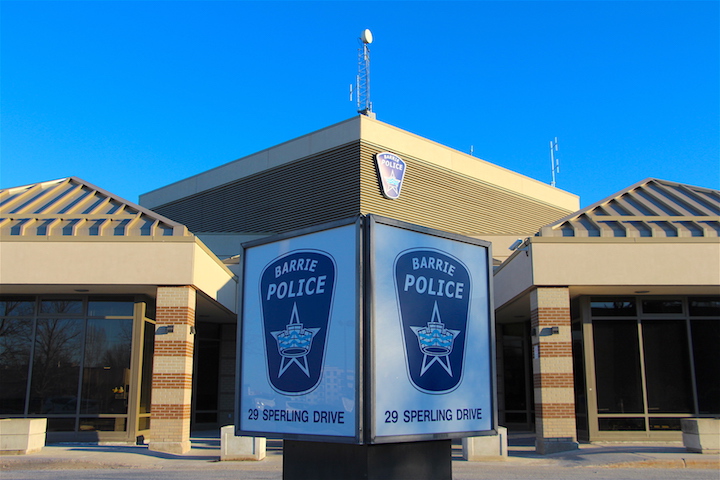The Barrie Police Service has confirmed that a few of its members have used the controversial Clearview AI facial recognition tool, but says they’ve stopped using it since receiving a request from Ontario’s information and privacy commissioner.

“It was utilized by specialized investigative units within our service to assist with ongoing investigations that they were involved in,” Peter Leon, the Barrie Police Service’s corporate communications co-ordinator, told Global News.
“When the chief received the request, it was immediately stopped.”
Leon wasn’t able to say what departments specifically used the technology, only that they were “specialized units.”
“It’s certainly not a case of front line uniformed officers that were using them,” Leon said. “It was isolated to a very small, select few individuals, and when I say few, I mean… like two, maybe three.”
According to Leon, the officers who were using Clearview AI had permission to use it for investigative purposes.
The facial recognition technology generated privacy concerns following a New York Times investigation that revealed that hundreds of law enforcement agencies in Canada and the U.S. were using it. Clearview AI cross-references uploaded images of people against three billion photos through a database that obtains photos from social media.
The federal privacy commissioner and counterparts in B.C., Alberta and Quebec recently announced that they will jointly investigate the usage of Clearview AI in Canada.

Get daily National news
“Facial recognition is extremely harmful because it obtains the most sensitive biometrics that exist — your face,” Ann Cavoukian, the executive director of the Global Privacy and Security by Design Centre, told Global News Friday.
“Your facial image… in the wrong hands, it can cause undue harm, identity theft, all kinds of things.”

According to Cavoukian, who’s also Ontario’s former information and privacy commissioner, privacy laws in Ontario aren’t strong enough when it comes to using facial recognition tools.
“I think what we need is regulation preventing the use of facial recognition and certainly preventing the unauthorized use of facial recognition by groups like Clearview AI,” she said.
In January, Ontario’s information and privacy commissioner, Brian Beamish, said in an email to Global News that he would be “very concerned” if police services in the province were using technology that automatically collects pictures of people’s faces from the internet.
In early March, the Ontario Provincial Police confirmed the use of Clearview AI to investigate cases of child sexual exploitation, human trafficking and cyber crime. The OPP also said some officers with the digital forensics unit had accessed the technology.
In addition to the OPP, the RCMP, Toronto and Hamilton police have said that officers have used or tested Clearview AI software. Outside of Ontario, police in Halifax and Edmonton have also confirmed they’ve used it.
“Whatever they decide federally will assist the provincial issue,” Leon said.
“At the end of the day, whatever decision is made is one that the Barrie Police Service will obviously respect.”

— With files from Global News’ Rachel Browne, Kerri Breen, Alexander Quon and The Canadian Press








Comments
Comments closed.
Due to the sensitive and/or legal subject matter of some of the content on globalnews.ca, we reserve the ability to disable comments from time to time.
Please see our Commenting Policy for more.